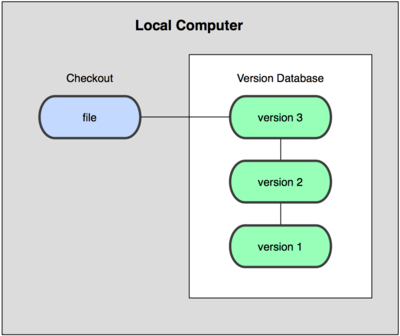
Version control systems (VCS) are crucial tools in modern software development. They allow multiple developers to collaborate efficiently and effectively, providing a structured and organized way to manage code changes. In today’s fast-paced development environment, the use of a VCS can mean the difference between a smoothly running project and a chaotic, error-prone one.
Benefits of Version Control Systems
Enhanced Collaboration
Firstly, version control systems enable team collaboration. Multiple developers can work on the same project without overwriting each other’s changes. This is especially important in large projects where numerous people contribute to the codebase. With a VCS, changes from different team members can be integrated seamlessly, avoiding conflicts and ensuring that everyone is working on the most up-to-date version of the code.
History and Revisions
Additionally, version control systems provide a history of changes. This history allows developers to track progress and revert to previous versions if needed. For example, if a new feature introduces a bug, developers can quickly identify and revert to a stable version of the code. This ability to roll back changes ensures that issues can be resolved quickly, minimizing downtime and maintaining the integrity of the project.
Improved Project Organization
Moreover, VCSs improve project organization. By keeping track of all changes, they prevent code duplication and ensure consistency. Developers can branch off the main codebase to work on new features or bug fixes, then merge these changes back into the main codebase once they are tested and approved. This branching and merging process keeps the main codebase clean and organized, making it easier to manage and maintain.
Facilitation of Continuous Integration
Finally, version control systems facilitate continuous integration. They allow for automated testing and deployment, ensuring the software remains stable. Continuous integration (CI) involves automatically building and testing code changes whenever new code is committed to the repository. By integrating VCS with CI tools, developers can catch and fix issues early in the development process, leading to more reliable and higher-quality software.
Types of Version Control Systems
Local Version Control Systems
Local version control systems store all versions on the developer’s local machine. They are simple but limited in collaboration capabilities. In a local VCS, changes are tracked and stored on a single developer’s computer, making it difficult to share code with others. This type of system is often used by individual developers or small teams working on simple projects.
Centralized Version Control Systems
Centralized version control systems use a single server to store all versions. Developers check out files and check them back in. This system provides a central repository where all code changes are stored, making it easier for teams to collaborate. However, if the central server goes down, developers may lose access to the repository, highlighting a potential drawback of this system.
Distributed Version Control Systems
Distributed version control systems allow each developer to have a complete copy of the project. This method enables offline work and more flexibility. In a distributed VCS, every developer’s machine acts as a full-fledged repository, allowing them to work independently and merge changes later. This system provides redundancy and resilience, as there is no single point of failure.
Peer-to-Peer Version Control Systems
Peer-to-peer version control systems distribute versions across multiple systems. Each peer can act as both a client and a server. This decentralized approach allows for greater redundancy and fault tolerance. Changes can be shared directly between peers, making it easier to collaborate without relying on a central server.
Conclusion
In conclusion, version control systems are essential for managing software development. They enhance collaboration, provide a change history, and improve project organization. By using a VCS, developers can work together more effectively, track changes, and maintain a high level of code quality.
Understanding the different types of VCSs is crucial for choosing the best system for a project’s needs. Local, centralized, distributed, and peer-to-peer systems each have their own advantages and drawbacks. Selecting the right VCS can significantly impact a project’s success and efficiency, ensuring that development processes run smoothly and that the final product meets the desired standards. By leveraging the power of version control systems, development teams can achieve greater productivity, reduce errors, and deliver high-quality software.
